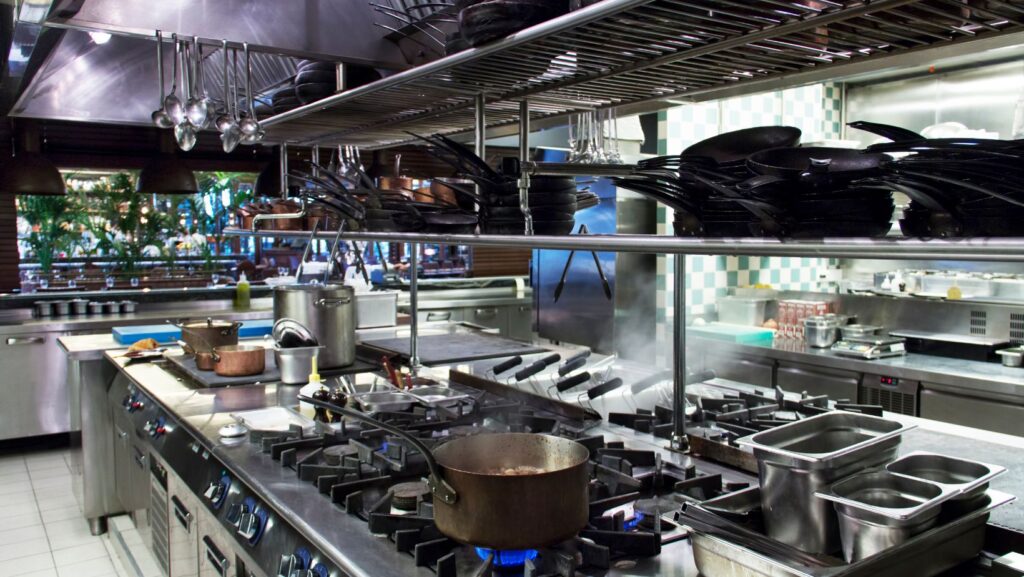Addressing sustainability in the food industry is increasingly crucial, and commercial kitchens are no exception. This article delves into the principles and strategies of using sustainable materials and adopting eco-friendly practices in commercial kitchens.
Understanding Sustainable Materials:
Sustainable materials are those that prioritise environmental friendliness, social responsibility, and economic viability. They are crafted from renewable resources, recycled materials, or biodegradable substances. Consider these examples of sustainable materials suitable for commercial kitchens:
Bamboo: Fast-growing and renewable, bamboo is a versatile option for flooring, countertops, and cutting boards. It’s known for its durability, lightweight, and easy maintenance.
Recycled Glass: Utilizing post-consumer glass, recycled glass can be employed for countertops, backsplashes, and decorative accents. It comes in various colours and textures.
Reclaimed Wood: Salvaged from old structures, reclaimed wood adds character to spaces and can be used for flooring, countertops, and decorative elements.
Cork: A renewable resource suitable for flooring, wall coverings, and bulletin boards, cork is soft, warm, and offers excellent insulation.
Recycled Metal: Made from post-consumer metal, recycled metal is available in different finishes for countertops, backsplashes, and decorative elements.
Eco-Friendly Practices for Commercial Kitchens. Consider the following practices:

Reduce Food Waste: Minimize food waste by using fresh ingredients, planning menus thoughtfully, and composting food scraps.
Use Energy-Efficient Appliances: Opt for ENERGY STAR-certified appliances to reduce energy consumption and cut down on utility costs.
Source Local and Organic Ingredients: Choose local and organic ingredients to lower the carbon footprint, as they require less transportation and are grown without harmful pesticides.
Reduce Water Usage: Install low-flow faucets, use water-efficient dishwashers, and promptly fix leaks to decrease water usage.
Use Eco-Friendly Cleaning Products: Opt for natural, non-toxic cleaning products that are safe for the environment and human health to minimize the use of harmful chemicals.
To conclude, embracing sustainable materials and eco-friendly practices is vital for commercial kitchens to minimize their environmental impact. By adopting these measures, commercial kitchens contribute to creating a healthier and more sustainable food system. This article aims to provide valuable insights into the principles and benefits of incorporating sustainable materials and eco-friendly practices in commercial kitchens.
Get in touch with HPG Consulting today at +91 88600 03927 and let our team of passionate Food Service Consultants assist you in reaching your goals through cutting-edge design and seamless implementation of food service facilities. Your journey towards success begins with us!